
Freitag erscheint mit Risk To Exist (Partnerlink) das neue Album von Maxïmo Park. Die Briten werden mit ihrem sechsten Werk durchaus andere Wege gehen, als bisher und dennoch den gewohnten Charme beibehalten (mehr dazu die Tage in den nächsten Kurzreviews).
Im Interview erzählen mir Keyboarder Lukas Wooller und Sänger Paul Smith, was die neue Platte mit dem 2005er Debüt gemein hat, wieso der Bass die Gitarre abgelöst hat und warum aus Maxïmo Park mit an Sicherheit grenzender Wahrscheinlichkeit kein Chor mehr werden dürfte. An dieser Stelle vielen Dank für die Zeit, die sich die beiden genommen haben, denn statt in der Hektik hingeschriebene Einzeiler gibt es wunderbare Antworten zu lesen!

Maxïmo Park im Interview
Maik: Your sixth record “Risk To Exist” will be released shortly – what can we expect?
Lukas Wooller: Something old, something new. We try to approach every record differently, and this time we started the writing process aiming to record the songs live. This meant that we’d be spending a lot more time together in the rehearsal room, playing the songs through. We usually have a little bit of polishing to do once we get to the recording stage and with our previous record „Too Much Information“ we recorded it in our own studio, with Duncan our guitarist manning the desk, and the process was very piecemeal – Dunc couldn’t be in two places at once! The energy of the band playing either in a room or on stage is an important characteristic of the band and we really wanted make sure this record conveyed that. Not since the first record have we entered the recording studio having rehearsed so much.
In comparision to the either fast paced or more “dreamy” songs on your previous record “Too Much Information” your new album seems to have a more coherent sound without that much highs and lows…
Lukas: We wanted to embrace the spaciousness and groove we’d found on the last record in songs like „Brain Cells“ and to try and get that into every song. All the new songs are based around the bass and drums, while the guitar and keys are just adding colour where needed. In the past songs might have started with keys and guitar ideas which explains why a lot of our songs are quite frenetic! This time we wanted the bass to do the work, and I think you can hear that in the way the tempos have slowed down and the rhythms are more danceable in the traditional ‘disco’ way.
Near the end of “Respond To The Feeling” we get to hear some electronic synthie sounds – how much did you experiment to get the sound of “Risk To Exist” right – an what spontaneous ideas didn’t make the final cut?
Lukas: „Respond To The Feeling“ is the most electronic song on the record and is the only song we didn’t play live as a band. Instead we layered drums and vocals over guitar and keys ideas we’d put together in our own studio. We tried to play those studio ideas live, but it didn’t have the same energy. This album was less about sonic experimentation and more about communicating a song through a group of 5 musicians in the most exciting way, live in the room. If we couldn’t play the main parts live then an idea wouldn’t make the cut. So in reality there wasn’t much room for new ideas once we got to the recording stage – we’d weeded them all out. One idea we did try on the final recording was to have ‘group’ backing vocals for the chorus’ on „Get High (No I Don’t)“. We were envisaging a Bad Seeds style call and answer but after spending an admittedly fun afternoon shouting and singing, we had to admit it sounded pretty awful.
Even though you already wrote about political topics before – are the lyrics more serious than ever on this record, with inspiration coming from modern developments like the refugee crisis, Brexit or the bank crisis?
Lukas: As the new songs took shape we noticed that more overt political lyrics were emerging, with words like government and right-wing. In some ways it felt a natural progression and a reflection of our feelings, but we were also aware that having obviously political themes in the songs might be off putting for the listener. We’ve always tried to allow the interpretations of our songs to be as open as possible and not exclude anybody. Its been tricky to keep the political and personal in balance in the songs and to communicate our feelings about current events without preaching. Whether we have succeeded or not only time will tell – we always write our songs to be relevant to any future listeners and not just for the present ones.
What gave you the idea for the „general terms and conditions“ structure in the song “Alchemy”?
Paul Smith: The song had an unusual structure so I felt I could get away with writing sections that were at odds with each other. I have never used a dating app but I can imagine modern romance having something of the impersonal language that you hear at the start of this song. When we look for information online we are bombarded by all sorts of pop-ups and terms and conditions so I thought I would weave that into one of our songs, which is about love being more important than all of the noise in our lives. I have been reading a lot about Derek Jarman and his interest in alchemy so it all came together in this song.
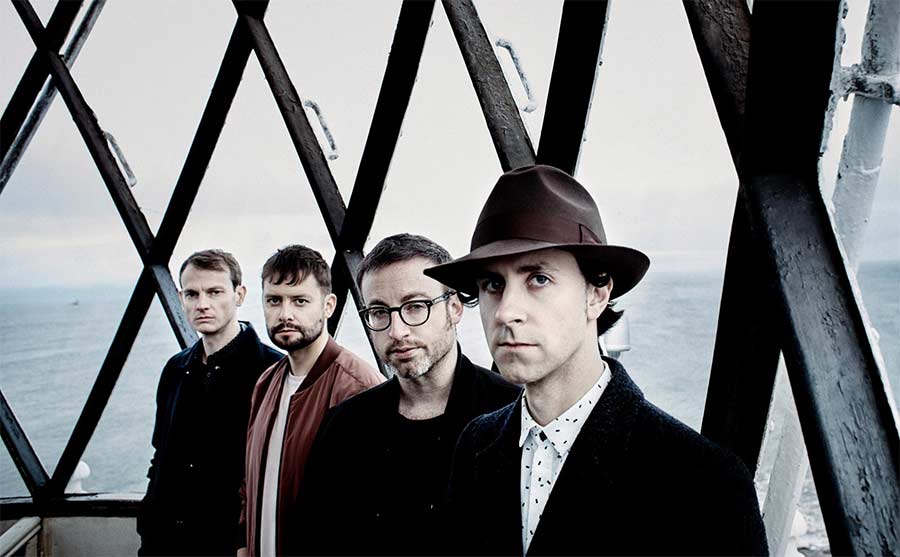
Whenever band musicians are “focusing on personal music” fans get afraid this will mean a hold on the “original” music. But including his solo albums Paul has released seven ones within the last eight years – how do you come up with all this output (and how long can we expect this frequency)?
Paul: I don’t know, to be honest – let’s see how long I can keep it up! I hope there will be fans of my ‚original‘ solo music who are annoyed about me making Maxïmo Park records as a side project! Seriously though, I just make music and don’t think of one album being more important than another. If I am spending my time making something then I am usually fairly obsessed by it. I love making different types of music and feel lucky that people are listening.
As of “Margins” having been a true contrast to the previous MP-sound from then on the evolution of both, the band and solo records, seem to converge. How much Maxïmo Park and how much Paul Smith is in “Risk To Exist”?
Paul: Well, the lyrics are all mine so you could say that I am the architect of the concepts we sing about, but everyone else in the band has to be connected to an idea otherwise it won’t work. Musically we share ideas so everyone has a voice in the band. We got together and decided that the lyrics on this album should take a more political approach because some of the early songs were leaning in that direction.
When you write songs, do you, Paul, know in the beginning (or afterwards) whether this is for the band or a solo project?
Paul: Sometimes. I think the rest of the band have their own ideas about my songs and now they designate which ones are for the band and then I record the rest myself. I’ve been working on some very quiet songs that I’d like to release eventually and they don’t need a band on them so that’s quite easy to pinpoint as solo material. I think the last Intimations album was more of an indie pop record that reminded me of The Go-Betweens whereas I think Maxïmo Park only touch up on that sound occasionally these. I love that sound and had written songs that were best suited to a different band in the end.
After we got to see several minutes of performance in the video to “Risk To Exist” the later ones (for “What Did We Do To You To Deserve This?” and “Get High (No, I Don’t)”) don’t feature the band at all – how come?
Lukas: To be honest, jumping around miming for a camera is not our favourite part of being in a band. We’ve done plenty of performance videos in the past and we always put in 110%, but if we can avoid it, we will. We also don’t have much budget for videos these days. For „What Did We Do To You To Deserve This?“ we just wanted to do a lyric video but with some kind of twist so we took a cue from the typewriter that Paul has been using for many years and filmed the lyrics being typed out. „Get High (No I Don’t)“ had more of a budget and the video plays on the idea of repetition as coercion described in the lyrics and that we see used so many times in political campaigns. In the UK EU referendum, the Vote Leave campaign constantly repeated that the EU cost the UK £350 Million and claimed (misleadingly) that the UK could reclaim that for the NHS. But as always we don’t want the meaning to have one narrow interpretation. More generally the video shows the danger of a constraining routine.
In support of “Migrant Offshore Aid Station” (MOAS) you also published an alternative version for “Risk To Exist” showing refugees trying to cross the sea. Suddenly the lyrics become a lot heavier and more serious. How did the idea of this partnership come up?
Lukas: It’s a serious, moving subject and we’ve always tried to contrast our lyrics and our music, because we feel that can be really effective in making something that is more unique and possibly more potent. Getting people dancing to a jaunty piece of music with lyrics about empathising with refugees seemed like a different way of looking at a subject that some people might feel somewhat hardened too. The lyrics were partly written after reading an article about MOAS and the work they do so it seemed logical to try and make that connection and try and help MOAS in some way once the song was finished. When we made the video with the MOAS footage we were a little uncertain that the music might undermine the films content, but I think we’ve managed to combine them in such a way that the force of the lyrics really hits home.
Let’s change back to the music, shall we? It gets warmer and festival season is coming up: what is the gig you look forward to the most this year?
Lukas: I don’t think there’s a particular show I am looking forward to at the moment, we just really want to play our new album to people! We’ll be playing the whole of the new album as well as some choice cuts from our previous 5 albums, including some much requested songs that we haven’t played in many years. The new album is much groovier and I’m hoping that will contrast really well with our well known high energy singles like Our Velocity, Apply Some Pressure and The National Health.
Always my last question: what do you do when you feel bored?
Lukas: I read – I always have too many books to read and so if I have some time or I’m feeling stuck in a rut, I turn my phone off and go somewhere quiet with a book. At the moment I’ve just finished „The Dispossessed“ by Ursula Le Guin, the first female sci-fi author I’ve read and a really excellent book. I’m also reading Philip Roth’s „The Plot Against America“ about a right wing populist who becomes the US president on a wave of racist sentiment, which seems a timely thing to read right now. And finally „From Bacteria To Bach And Back Again“ by Daniel Dennett, a new book which attempts to explain how human consciousness is possible.
Thanks for the interview.

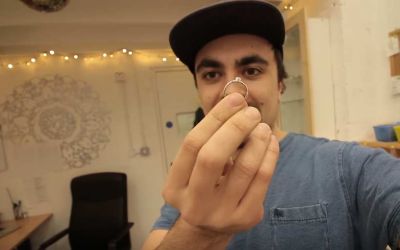
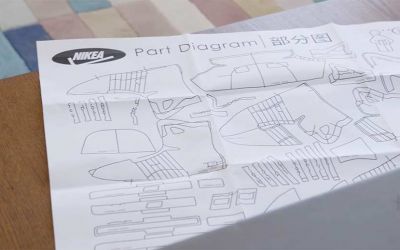
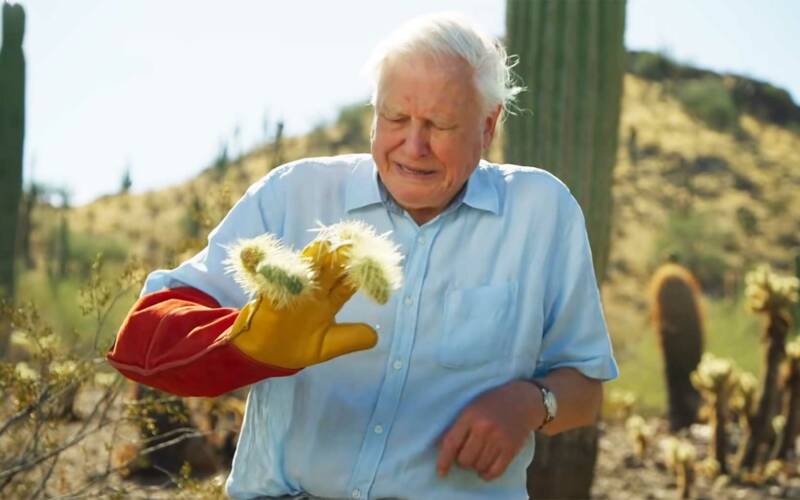


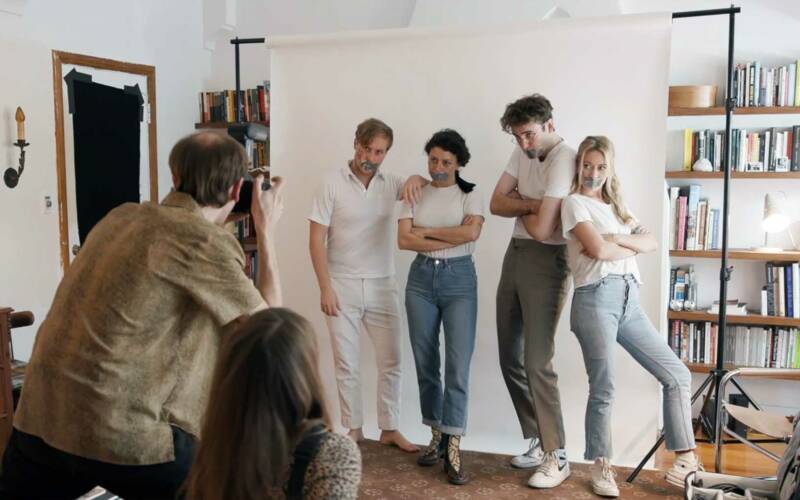








Noch keine Kommentare